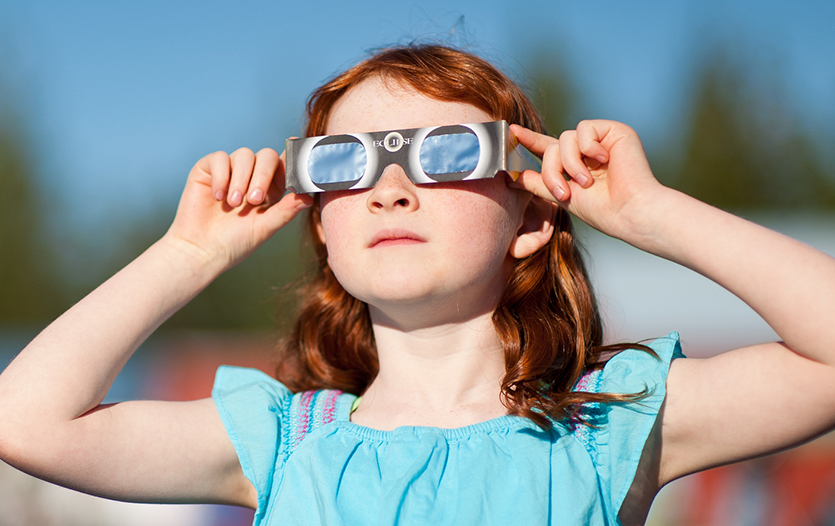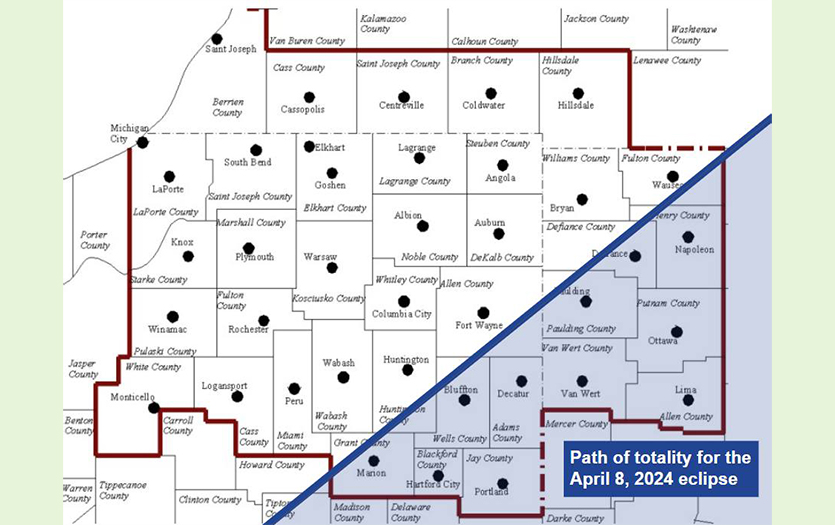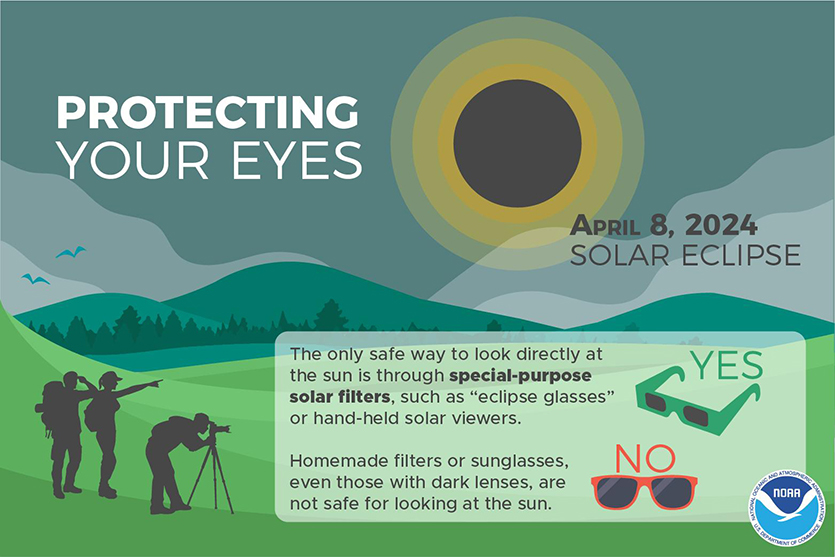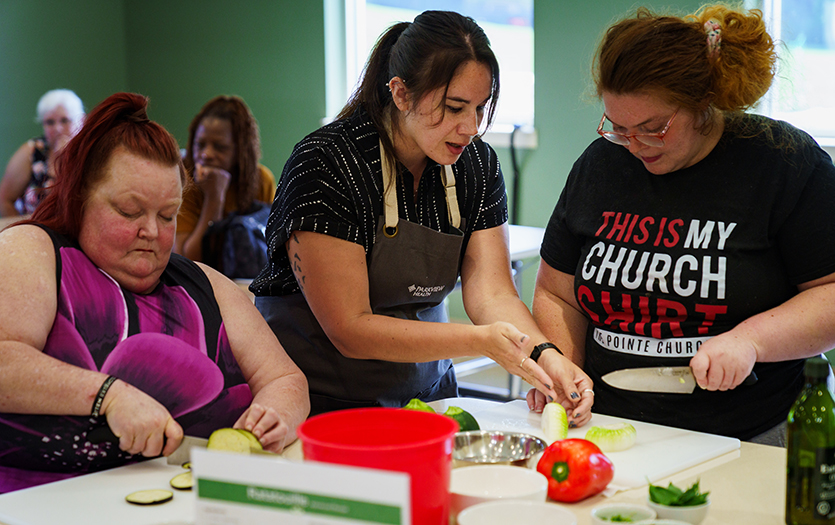
This post was written by Mike Eckroth, NHDP-BC, CHEP, CEDP, corporate director, Emergency Management and Business Continuity, Parkview Health.
On Monday, April 8, 2024, portions of Indiana and Ohio will experience a total solar eclipse. An eclipse happens when the moon passes between the sun and the earth, casting a shadow known as the "path of totality," causing the sun’s light to be completely blocked by the moon.
While most of our Parkview locations are outside the path of totality, a partial eclipse (98-99%) will still be visible. As shown on the map below, the north edge of totality will enter our area just south of Wabash and Huntington, travel through southeastern Allen County and continue south of Bryan, Montpelier and Archbold.

Events
Here’s what to expect on April 8 (times are approximate depending on location):
- 1:54 p.m. – A partial eclipse begins as the moon enters the sun's path. Depending on your location, totality or maximum partial eclipse will take approximately one hour and ten minutes.
- 3:10 p.m. – Peak eclipse timing
- Outside the path of totality, the moon will obscure 98-99% of the sun, depending on your location.
- Inside the path of totality, you will have a limited time of total darkness.
- 4:24 p.m. – Partial eclipse ends
These times are approximate. For more detailed information on your location, you can visit NASA's solar eclipse map and enter your zip code for exact timing.
How to stay safe during the solar eclipse

Viewing the eclipse
Never look at the sun without specialized eye protection, as doing so can cause severe eye injury. Follow these tips for a safe viewing experience:
- All those who wish to view the eclipse should use solar eclipse glasses or handheld viewers. These viewers are thousands of times darker than regular sunglasses and should comply with the ISO 12312-2 international standard. Make sure the viewer doesn’t have any scratches or other damage before use.
- Do not remove your glasses at any point unless you are in the path of totality. If you are in the path, you will know it is safe to remove them when you can no longer see the sun in your glasses. Put them back on immediately before totality ends.
- Never view the sun with regular sunglasses, through a camera lens, binoculars or telescope. For more, see the information on Solar Retinopathy from the Indiana Department of Health (IDOH) outlining prevention, symptoms and treatment.
Driving
- If driving during the eclipse, make sure your headlights are on so you remain visible to other drivers. Use caution, as not all streetlights will come on during the eclipse. Heavy traffic is expected after the eclipse, so plan ahead to ensure you have provisions in your vehicle if you get stuck.
Potential impacts of the solar eclipse
While we expect Eclipse Day to be business as usual with some expected delays, there are several things to be aware of and prepare for.
Traffic
- Increased traffic in the days leading up to the eclipse is expected as people travel to their viewing locations.
- Up to 500,000 people are expected to visit Indiana for the eclipse.
- Most area schools are either on spring break or have canceled in-person learning for the day.
- Most people will get on the road right after the eclipse, causing heavy traffic. Recent eclipses in the United States have reported gridlocked roads as people attempt to travel home after the event.
Plan for increased traffic:
- Expect heavy traffic and ensure ample time to reach your destination.
- Work ahead on deliveries or travel where possible to limit exposure to traffic.
- Monitor traffic conditions in real-time in Indiana and Ohio.
Resources
Increased visitors will place additional demand on fuel and food supplies in the area. Make sure your vehicles are filled up with gas ahead of time. In addition, make sure you have a preparedness kit available in your vehicle with some food and water in case you get stuck on the roads.
Additional information
If you are looking for additional information on the total solar eclipse, these trusted sources can help:
- Indiana Department of Homeland Security Eclipse Information
- Ohio Emergency Management Agency Eclipse information
- NASA Eclipse Information
Patients can rest assured that Parkview has plans and protocols in place to monitor operations and secure communication with our local, state and federal partners in the region. We have spent several months planning for this event with our communities to ensure a safe and smooth operation on Eclipse Day.




